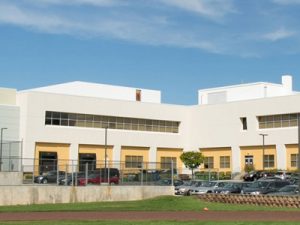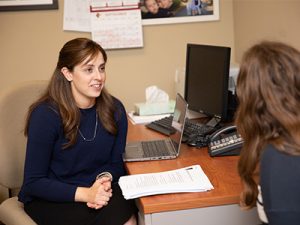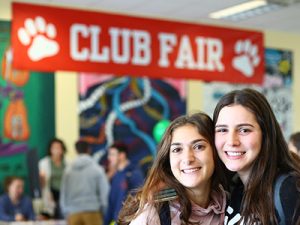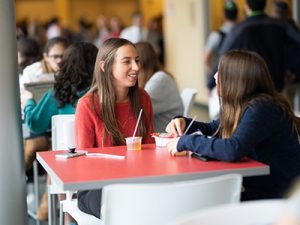Halacha/Machshava
The 11th grade Halacha course focuses on halachic rulings on many “real world” issues, including topics relating to health, medicine, business, and the internet. Topics in kashrut and shabbat are also discussed but with the objective of gaining a practical understanding of modern challenges and how they are addressed in Jewish law. Students delve into the study of primary texts, beginning with sources in Tanach, and follow the topic through the Mishna and Talmud, as well as through commentaries and responsa of rishonim and more contemporary poskim. The objective of the course is to engage students in the dynamic and exciting process of halacha which has many implications in public and private life.
Machshava and Halacha Senior Electives
Fundamentals of Faith
Are there certain principles which one must believe in Judaism? Rambam’s 13 Principles of Faith is used as a springboard to explore what a Jew must believe. Topics discussed include the Messianic Era, theodicy, reward and punishment, and the afterlife. Other views of dogma – those of rishonim as well as of modern thinkers – are compared to Rambam’s delineation to discern a Jew’s obligatory beliefs.
Halacha for the 21st Century
Halachic and ethical dilemmas encountered in the everchanging world of business, technology, social media and personal relationships are examined. Issues that are addressed are traced from their sources in Tanach and Talmud, through the Shulchan Aruch and contemporary responsa from leading poskim. Students learn the process of psak halacha, through classical sources as they are applied to the challenges of tomorrow.
Big Questions in Jewish Philosophy
Throughout the course of history, people have looked at the world and have struggled with various aspects of humanity and faith. These issues have been examined by religious and secular thinkers, yet one can only appreciate their answers by first asking questions. Each topic covered encourages students to ponder some of the major issues facing Jewish and Western Culture, including morality, free will, identity, heroism, individuality, faith and doubt. Students explore new ways of looking at texts and ideas, encountering both the confluence and the conflict of Jewish and secular learning which, in turn, bring them to a higher level of understanding of and connection with God and His world.
Hilchot Shabbat
“More than the Jew has kept Shabbat, Shabbat has kept the Jew.” Students gain background and insight into why and how Jews observe Shabbat. The course begins with an overview of Shabbat in the Torah, midrashim, and contemporary philosophical writings and covers the positive mitzvot such as kiddush, hadlakat neirot, and oneg/kavod Shabbat, as well as several of the 39 melachot.
Chassidut: Adventures of the Soul
Students learn central topics in Jewish thought and tradition from the perspective of the Chassidic masters of yesteryear through modern day. The aim of the course is a deeper understanding of the soul, Torah and mitzvot and our relationship with God. Topics include: Nature of the Soul, God hidden and revealed, nature and miraculous, perspectives on sin and redemption, body and soul, intellectual and emotional service, where the infinite and finite meet, and Chassidic insights into the holidays.
Responsa: The Questions They Asked
Students analyze responsa that have shaped halacha and Jewish thought throughout the years and examine the historical context in which the questions were asked. Introductions of various compilations of responsa are studied to give students a lens into the mind and world of Torah authorities.
Hilchot Kashrut
Issues in Kashrut, such as the reasons for the laws of kashrut, which foods are permissible, minhagim of waiting between meat and milk, what renders food or utensils treif, and how one goes about kashering treif items, are studied. Texts of the Talmud, Shulchan Aruch and responsa literature are analyzed. The goal of the course is to provide students with the resources to address their own kashrut questions, as well as provide them with a meaningful understanding of their religious practice.
Technology and Halacha
Students explore hilchot Shabbat and the implications of these laws regarding how they manifest in modern life and technology. They are then exposed to the current research, innovations and high-tech developments of the Zomet Institute, which they view from a halachic perspective. All students are required to work with a group to research and develop a written proposal for a relevant project and build a working prototype in the lab.
The Jewish Life Cycle: Sanctifying Life and Molding Moments
Customs, rituals and reasons for the most important life events that Jews experience are analyzed. Students delve into the – how, what and why – of the Jewish Life Cycle from the “cradle to the grave.” Issues discussed include, What is the purpose of a Brit Milah and why do some people oppose it? How was a Bar Mitzvah marked in earlier times and when did the Bat Mitzvah develop? How do other cultures mark the “coming of age”? How many rings are exchanged at an Orthodox Jewish wedding and how does a Jewish wedding differ from a non-Jewish one? What does halacha say about cremation and are there requirements for burial in a Jewish cemetery? Why do mourners recite kaddish and what are the do’s and don’ts of a shiva visit? Finally, how can someone choose to become Jewish and what is the process required for Orthodox conversion? Special focus is placed on the unique challenges that modernity poses to the practice of these ancient customs and how, guided by halacha and derech eretz, the integrity and authenticity of our timeless traditions can be maintained.
Bekiut Program
Students learn Masechet Megillah, along with the YU High School Bekiut program. The learning takes place in the Beit Midrash, and the structure of the class is two-thirds chavruta learning, and one-third shiur. Students take weekly quizzes, as well as the program’s official exams once every six weeks. This is an ideal choice for students who are motivated to learn Gemara independently and at a quicker pace.
Senior Spring Seminars
The Senior Spring program presents an array of curricular and experiential learning opportunities, affording seniors the chance to design a curriculum suited to their own individual needs and interests. Seminars are intended to introduce and prepare seniors for challenges they may encounter after high school. Topics include Israel Advocacy, Beit Midrash, and Kedushat HaMishpacha. In addition to coursework, students participate in other educational experiences outside of the classroom, such as work-study, chessed, and internships.





